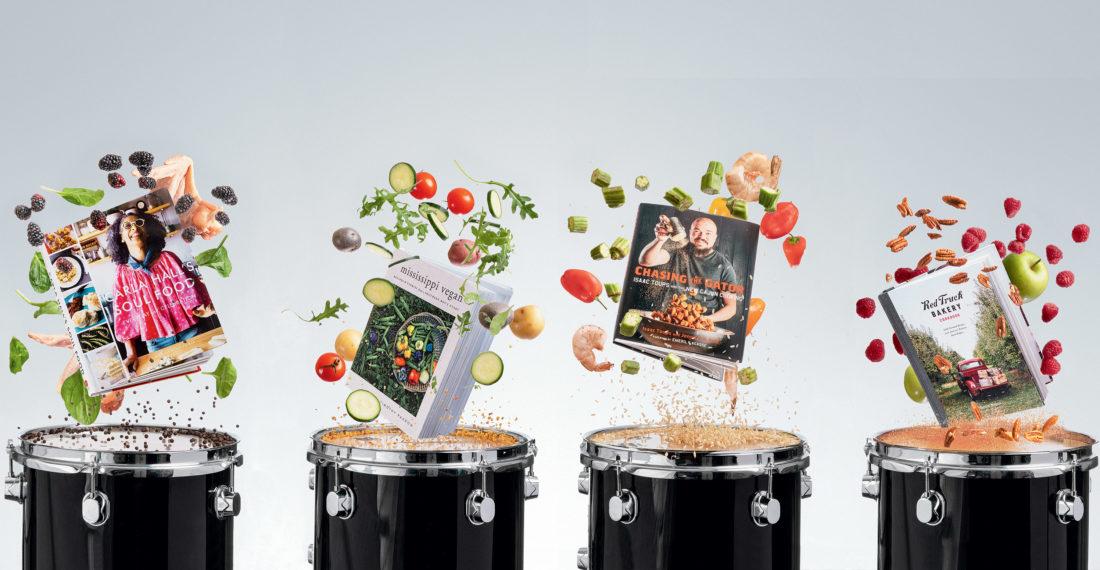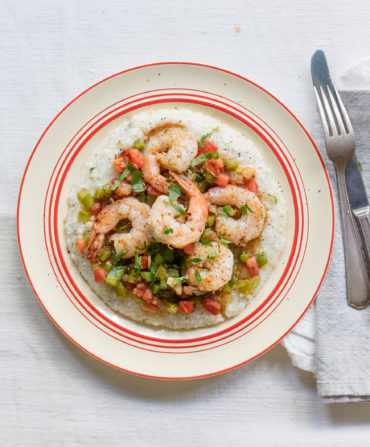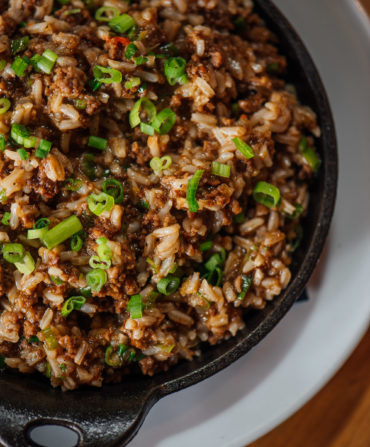The primary difference between Southern food and soul food, according to Carla Hall, is a simple one: “black cooks.” But Hall—the Nashville-born runway model turned Top Chef contestant turned daytime talk show cohost—offers another, more subtle distinction as well: “It’s like the difference between a hymn and a spiritual. Both sound beautiful and express the same message, but the spiritual’s got a groove.” Hall’s new cookbook, Carla Hall’s Soul Food, cowritten with Genevieve Ko, is like a big box-set album devoted to that groove, but, thankfully, its focus tilts more toward B-sides and deep cuts than greatest hits. It’s fresh, funky, and invigorating.
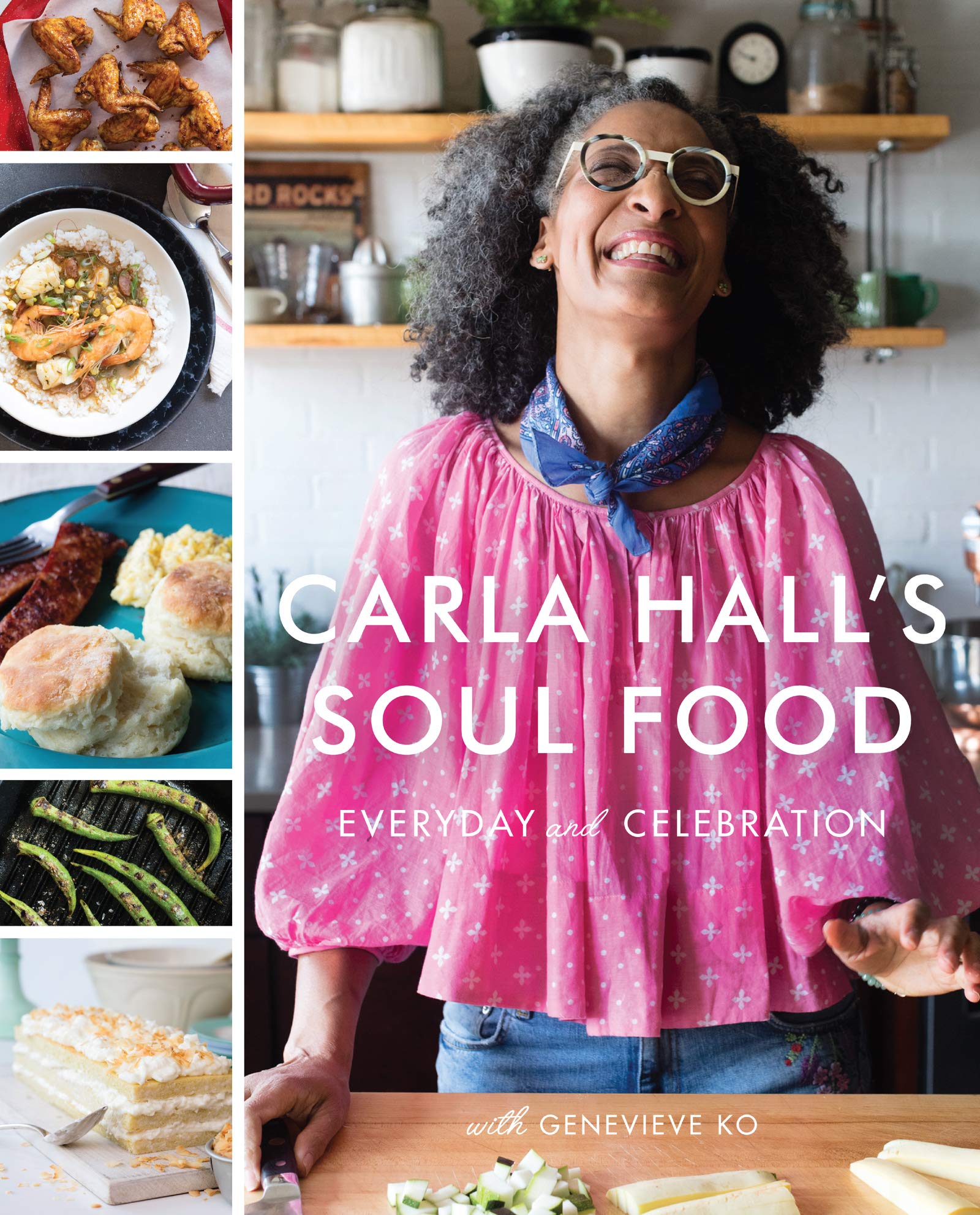
Hall’s aim—to redefine and reclaim soul food—is really about redirecting. That is, she wants to steer eaters away, at least partly, from “celebration foods”—fried chicken, candied yams, caramel cake—and toward the “amazing daily meals we [African Americans] created from greens and beans and grains.” African Americans were “cooking farm-to-table centuries before it was a label to slap on hip restaurants,” she writes. “You think you discovered kale? Child, we’ve been eatin’ those greens for hundreds of years.”
Though maybe not quite like this: blitzed with serrano chile and garlic and olive oil into a Provençal pistou. This is soul food as filtered through Hall’s personality: sunny, eccentric, vivacious. Her mixed greens nestle in a pool of smoked trout potlikker. She braises cucumbers and radishes with cider vinegar. She paints slow-grilled celery root with barbecue sauce. There’s soulfulness aplenty here—just not the kind, as Hall notes, that makes “you feel like you’re gonna die afterward.”
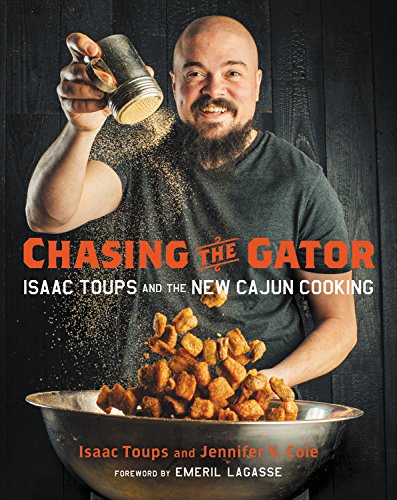
Isaac Toups, on the other hand, seems to want you to feel that way. His roasted cauliflower gets finished with a shower of bacon and a gob of Blue Plate mayonnaise. Of his Lacquered Collards, which see a full pound of brisket and bacon folded into two pounds of greens, he writes, “They may not be too healthy, but you didn’t pop open this book for that.” Toups is the chef-owner of two New Orleans restaurants, Toups’ Meatery and Toups South, and, like Hall, a Top Chef alumnus. The book, cowritten with Jennifer V. Cole, is Chasing the Gator, a rowdy valentine to Toups’s Cajun heritage that tacks the opposite direction of Hall’s book: He wants every meal to be a celebration, the kind that yields you a hangover from the food. That means chaudin, for which pig stomach is stuffed with ground pork shoulder and liver, then braised in gravy. It means Parmesan-braised tripe, roasted oysters with crab fat butter, and an earthy Sazerac terrine. Toups lovingly covers the Cajun standards—boudin, gumbo, dirty rice, Boudreaux and Thibodeaux jokes—but it’s a brash, wild love, full of bliss and vinegar.
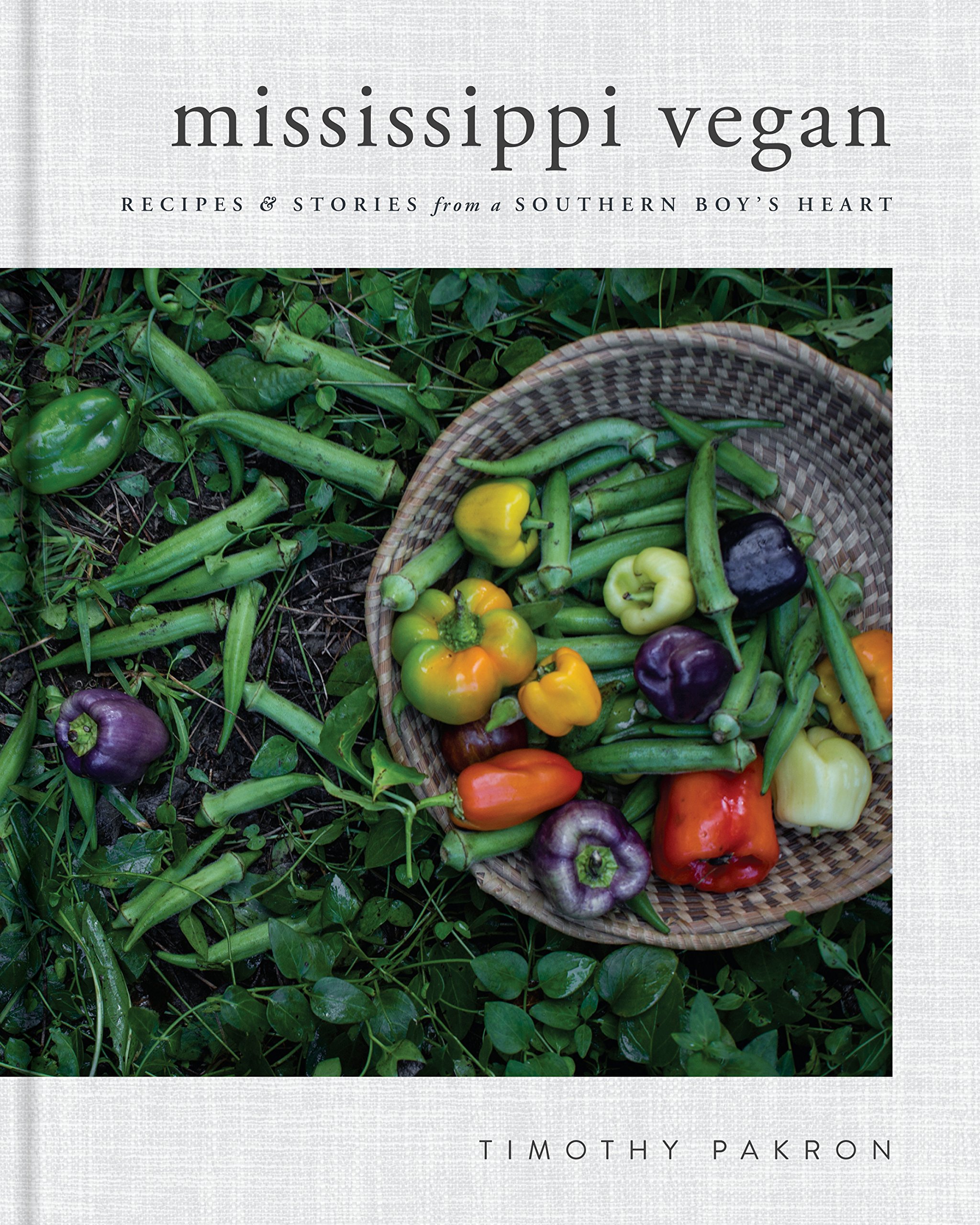
“I like it when even our desserts have pork in them” is a line from Toups’s book. An imagined rejoinder from Timothy Pakron, author of Mississippi Vegan, might go: “I like it when even our sausage biscuits don’t have meat in them.” Pakron, a Mississippi coast native, attempts to square what at first blush seem like irreconcilable traditions: veganism (no animal products) and Southern cooking, wherein bacon is considered a seasoning. His work-around is to focus, raptly, on the ingredients themselves, the root flavors from what he calls “the wild and luscious Southern landscape.” Among the highlights: a pan-fried artichoke heart salad with briny crushed olives; peanut stew with barely wilted greens; and a corn, okra, and tomato gumbo that’s basically a summer garden captured in a pot. Pakron also veganizes a few Deep South classics, including the aforementioned sausage biscuits, which consist of crispy barley, fennel, and sage patties tucked into vegan drop biscuits with a smear of jelly. There’s also a deeply enticing praline recipe that subs in coconut cream for the heavy cream. And as for that seasoning: There’s oven-fried shiitake mushroom bacon, with tamari for saltiness and liquid smoke for a smokehouse tang. For Southern vegans, Pakron’s book may be the best guide yet to harmonizing the lifestyle with the Southern larder, to keeping tradition—tweaked, but still intact—on the table.
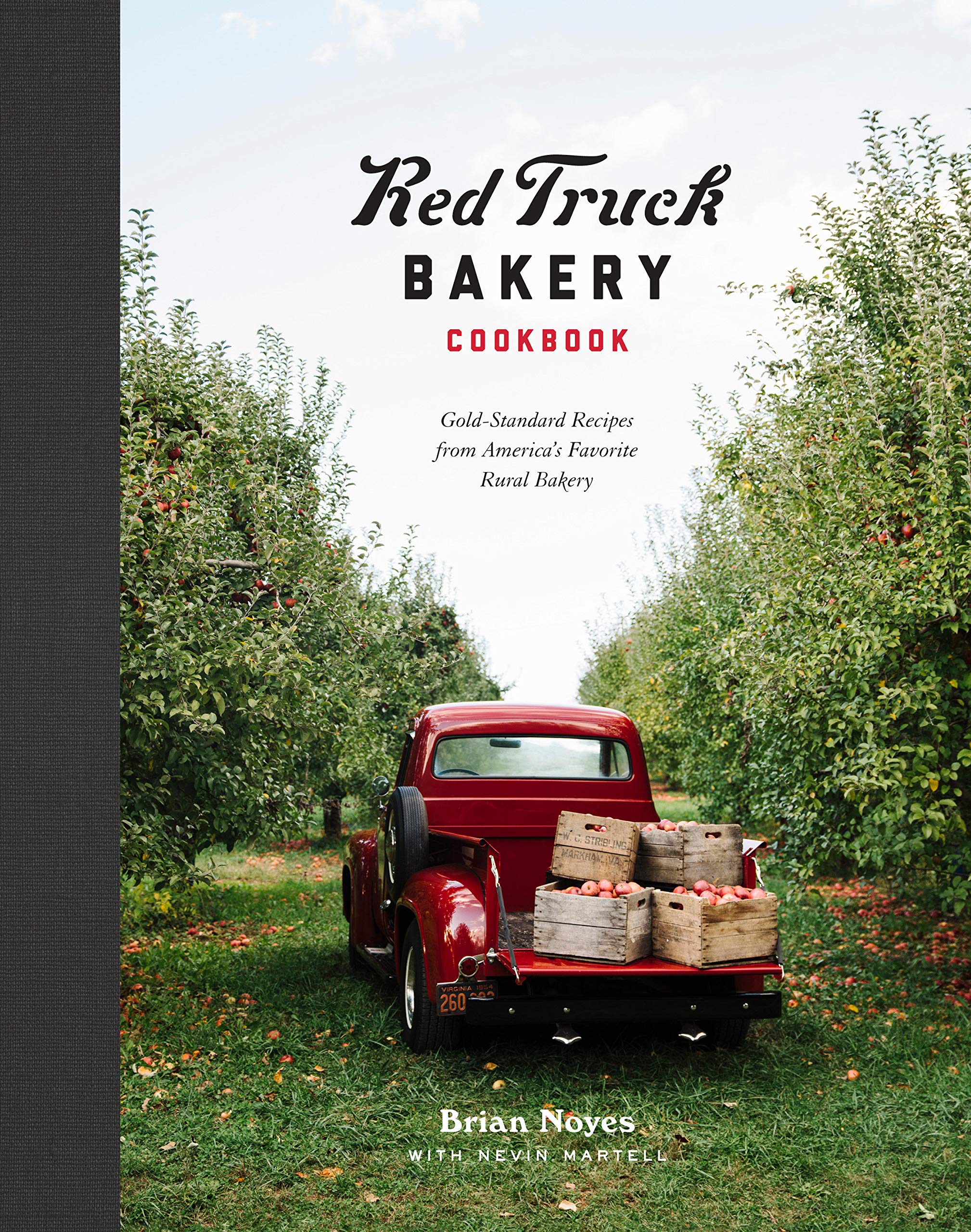
Brian Noyes, the founder of Red Truck Bakery, started in Warrenton, Virginia, has a sausage biscuit riff to share as well. And damn it’s a fun one. You crumble some biscuits into a piecrust; add broken-up cooked sausage, bacon, eggs whisked with pimento cheese, and a drizzle of melted pepper jelly; then bake until entrancingly golden. It’s like the multitool of Southern breakfasts. Granola, however, is what brought the nine-year-old bakery its renown—Andrew Zimmern called it the best granola in North America; Jane and Michael Stern of Roadfood fame expanded that to best on earth—and that granola recipe is likely to be the most dog-eared page in Red Truck Bakery Cookbook, by Noyes, with Nevin Martell. But this book, as that Barnyard Breakfast Pie attests, offers intriguing twists and turns. Bourbon pecan pie filling gets a dark vein of chocolate and goes into a salted pretzel crust. Shoofly pie becomes Southernized with sorghum and smoked sugar. Funeral pie—filled with raisins plumped in pineapple juice, and so-called because of its former ubiquity as a funeral offering—makes a welcome appearance. Watermelon pie: nuff said. Peach milkshake cake, its frothy frosting made with malt powder and instant vanilla pudding mix. What comes out of Red Truck Bakery’s ovens—and, really, what comes out of this crop of cookbooks—is nostalgic and forward-thinking at the same time, food that engages as well as comforts, that makes old grooves feel new.
MORE: Get recipes from these new cookbooks, including dirty rice, shrimp & grits, molasses cookies, and succotash stew.
Click here to see all recipes.


